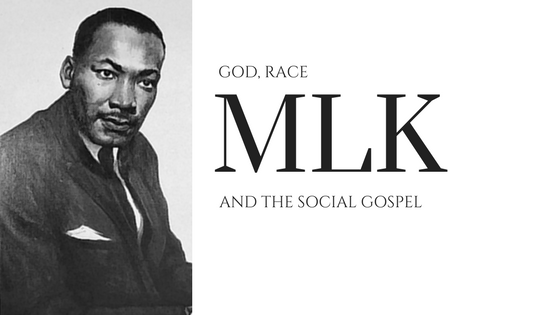The date you will read this is April 23rd, but I am writing this article on April 4, 2018. The latter date is relevant because it is the 50th anniversary of the assassination of civil rights leader Martin Luther King, Jr. The late Rev. Dr. King still has a profound impact on society at large, and it seems that over the past few weeks, whether I was reading a secular newspaper or listening to a Christian podcast, someone has reflected on Dr. King’s life.
Here, I will revere Dr. King’s legacy by synthesizing his work with what the Bible says about race and the role of a Christian in modern society. The conclusion that I draw is not the conclusion that you might expect, and that conclusion is that today, many have forgotten why Dr. King championed the civil rights of the American Negro. As a result of this amnesia, we have become confused about Dr. King’s core spiritual convictions that animated his legendary political work, but his political beliefs were distinct from his faith.
Still, my conviction is that Dr. King’s political reform was successful because of his faith, and that, in turn, was because his political agenda was not grounded in naturalism but rather was rooted in the transcendent Word of God. I will unpack what all this means in the following sections, and my discussion will touch upon what the Bible says about race, the social gospel, and the prophetic voice of the Church in matters of injustice. In the end, Dr. King passed away five decades ago, but his political wisdom can still bring us back on track so that we may face the challenges of a new age and chart a bold course toward the future.
First, we must embrace that God never, ever separated people based on race. Race is purely a human classification system that superficially divides people. Biblically speaking, God uses one primary criterion for classifying groups, and that criterion is whether one trusts God or not.
Thus, people are primarily divided into two groups: those who are for God, and those who are against Him (i.e., those that are in the Church of Christ, and those who are out). The Bible is crystal clear that, ultimately, it does not matter what you look like on the outside—what ultimately matters is whether you believe in your heart that Christ is Lord.
Indeed, God does use a secondary means for classifying groups of people, and that is based on nationality or ethnicity. For example, the Bible frequently talks about Egyptians, Greeks, Philistines, Canaanites, Jews, and Hebrews, but never red people, black people, or white people.
To further the point that race is artificial, even modern science provides supporting evidence. In his 1942 book entitled “Man’s Most Dangerous Myth: The Fallacy of Race,” Ashley Montagu argued that race is merely a social construct with no biological support. This claim is supported by modern genetic evidence that demonstrates that when comparing different races of people, most of the differences in DNA and proteins occur within a racial group and not between groups. This finding basically means that, genetically speaking, brown people are more different compared to other brown people and more similar compared to not-so-brown people.
All of this essentially tells us that the presupposed racial differences are just skin deep and not much more.
So, God created one race of people, and they are all human beings. How God created people should tell us something—that we only ought to be concerned with race when our interactions with it deviate from what God has ordained. And what has God ordained? Total racial equality by means of no racial distinctions. Consequently, if we stubbornly insist on dividing and classifying people based on race, we are not thinking like God. At the same time, if we stubbornly insist on dividing and discriminating based on race, then we ought to act to restore the balance so that civilization aligns with the Mind of God. At its core, racism is not one person looking down on another: It’s a person who looks at God and says, “What you made is sub-standard.” At its core, racism has nothing to do with race and everything to do with idolatry. How does all of this relate to Dr. King? He realized there is no way to cure racism if you just keep your eyes on the natural world. Racism is a spiritual problem, and the only way to cure a spiritual problem is to have your heart transformed by the supernatural power of God. And God will only use His own people to be the human agents for change that He effects by His divine hand of providence.
The modern concept of race is destructive of humanness. The term “race” in and of itself is divisive because it implies a competitive event. Even people who use politically correct terms use hostile, race-affirming language. For example, let’s say you saw me on the street and were asked, “Which race does Elijah Sadaphal belong to?” I would presume, based on appearances and given the standard multiple-choice options, that most people would probably choose “African American.” That would be my assigned race.
But here’s the problem: I’m American; I am not African. God says it is perfectly reasonable to label me based on my nationality, but where does the African come from? I’m not American with an asterisk. I was born in Brooklyn. I was raised in Long Island. I speak English. I eat apple pie. I said the pledge of allegiance in school in front of an American flag every day. I can trace my heritage back to Scotland and India through the West Indies. I’ve never been to Africa, nor do I have any known relatives there. I’m not African American; I’m American.
You are not Asian American; you’re American. You are not Cuban American; you’re American. You are not just a black man or an American Indian woman; you are a human being formed in the image and likeness of God and are a member of the one human race.
What this all means is certainly not that there is a universal brotherhood of mankind, because not every human being is an adoptive member of the family of Christ. But there still is a universal humanness of mankind, and therefore a God-given, universal assignment of innate human equality and the mandate for justice.
The yearning, then, for social justice, according to Dr. King, was grounded in his biblical worldview, and that God-centered worldview became frustrated when the spirit of the age was doing what was right in its own eyes but not doing what was right in God’s eyes. This is the point where Dr. King’s theological convictions compelled him to act in the political realm, but we have to be very careful because, as I said at above, faith and social justice are not one and the same.
This is what Dr. King wrote in NY Times Magazine in 1962:
“The nonviolent resisters can summarize their message in the following terms. We will take direct action against injustice without waiting for other agencies to act. We will not obey unjust laws or submit to unjust practices. We will do this peaceably, openly, cheerfully; because our aim is to persuade. We adopt the means of nonviolence because our end is a community of peace with itself. We will try to persuade with our words¾but if our words fail we will try to persuade them with our acts. We will always be willing to talk and seek fair compromise but we are ready to suffer when necessary and even risk our lives to become witnesses to the truth as we see it.”
Dr. King realized that all dramatic change involves violence, but his legacy of peaceful protest assumed all violence on the self. He, and all those who followed him, took the responsibility to assume all the suffering their radical changed demanded, and they assumed all that suffering so that others wouldn’t have to.
Dr. King also realized that, yes, the Church and the state are two different realms, but God did not ordain the state to govern just so that His followers could sit back and watch. For this reason, Dr. King acted, because nothing in reality changes unless someone actually does something. The apostolic church, for example, was not built by first-century Christians who kept to themselves and prayed in private. They followed Christ’s commands and went out into the world. The Reverend Doctor King, equipped with sound biblical principles, took his marching orders from God and then stepped out into the kingdom of the world. That paradigm is very different from the social gospel of today, which says faith equals social justice and the gospel equals political reform and that the Church is responsible for racial reconciliation. Nothing could be farther from the truth.
In an NY Times op-ed on April 1, 2018, Georgetown professor and ordained Baptist minister Michael Eric Dyson wrote an article entitled “We Forgot What Dr. King Believed In.” In it, he reflected on what Dr. King did and called for the nation to live out a specific faith that works to defeat racism and speak out against war. He derided both the black church for being too complacent and the white church for being silent or apathetic in regard to racial injustice. He wrote the following:
“Martin Luther King Jr. was a man of faith who didn’t mind making trouble for God. He believed his purpose in life was to bring justice to as many of God’s children as possible while proclaiming the revolutionary power of belief …. He believed that America must undergo a ‘revolution of values’ so that it might begin to fulfill the mandate of the Gospel to look after those who needed God’s help the most.”
Gospel means “good news,” and the good news of the gospel is not that different colors will get along nor that fewer citizens will be killed by the police. The good news of the gospel is that there is a way for sinners to get right with God, and that way is through Jesus Christ. Truly, of what value is it to anyone to gain anything in this world—whether social, economic or political—if they lose eternity? Is the Church mandated to preach a social gospel? The answer is a resounding no, and that presupposed mandate is merely meant to distract the Church from doing what God has called it to do: preach the Word of God.
The Church, by definition, preaches Christ and teaches the Bible; any church that fails to do that fails to be a church. Now, with all that being said, there is a but. But I do not think God ordained the government only for His followers to sit back and watch. If we want the world to be less God-less and more Christ-like, then we must act and actually do something. Of what value is our faith if from that faith works do not proceed? Yes, we are saved by grace through faith, but faith without works is dead faith. I do not mean to suggest that faith must be directed toward the realm of politics or social justice—I simply mean that genuine biblical faith must do something in the real world, and that something must be effective. Why must it be effective? Because faithful agents of God are used by God as His agents. The faith cannot fail because God never fails.
Reflecting on the time in which he lived, Dr. King once wrote:
“The greatest tragedy of this period of social transition is not the glaring noisiness of the so-called bad people, but the appalling silence of the so-called good people.”[1]
Furthermore, in an address before the National Press Club in 1962, King said:
“Legislation and court orders tend only to declare rights; they can never thoroughly deliver them. Only when people themselves begin to act are rights on paper given lifeblood. A catalyst is needed to breathe life experience into a judicial decision by the persistent existence of the rights until they become ordinary in human contact.”[2]
The only one who can save the world is Christ. The only solution to any problem is God Almighty. Naturalism cannot change the human heart, nor can legislation; it can only restrain those without a conscience. God is the solution, and the drama of redemption reveals that God always uses human agents who act in our reality to effect lasting change. For this reason, the God-man, Jesus Christ, represents the most intimate connection of God with our reality. Jesus acted—He lived, grew, learned, taught, discipled, led, died, and was resurrected. In other words, He did. What all this means is that we, as Christians in the 21st-century, cannot remain idle. The Church will always do what God commanded it to do: worship God, teach sound doctrine, and cultivate the fellowship of believers. What individual Christians must do, however, is act. The cost of silence is the supreme reign of a God-less worldview. The cost of inactivity is the enslavement by the spirit of the age of civilization. The cost of apathy is an agenda set by the glaring noisiness of the so-called bad people for everyone else. Beloved, there is no magic in time itself. Time is only a resource that you can either waste or use effectively. If we want the world to know Christ and thereby be permanently transformed with a new heart and a new mind, then we must do.
Dr. King was the catalyst that his generation needed, and he sparked the flame that ignited a movement saturated in hope. That hope was grounded in the timeless truth that although the arc of the moral universe is long, it bends toward justice. Christians do not need armies en masse, but what we do need is the unquenchable fire and power of a committed, morally sound minority to effect lasting change. This minority is driven by the unstoppable power of God Himself. Our acting in and of itself is not valuable; it is made valuable by its object, Jesus Christ. Only He can do what men cannot. The Bible tells us that God uses those who are faithful, those who are humble, those who are committed, those who are skillful, and those who are purposeful to do God’s work on God’s terms in God’s world all for the glory of God.
Rev. Dr. C. H. E. Sadaphal
[1] Martin Luther King, Jr., A Testament of Hope, ed. James M. Washington (New York: HarperCollins: 2011), 89
[2] Ibid.


